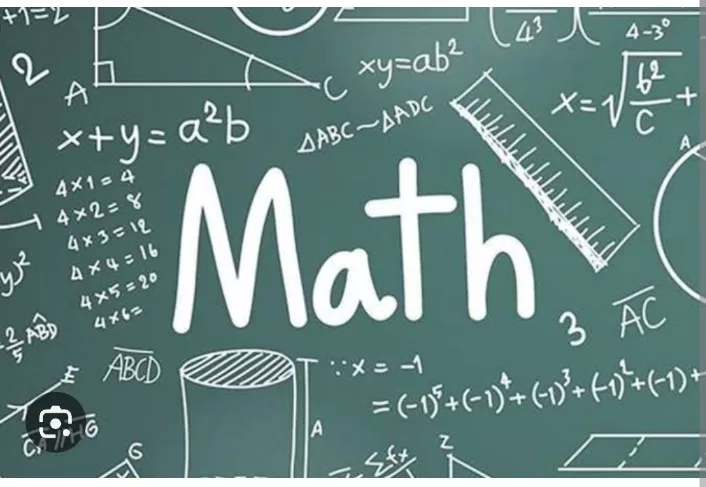Kevin Tran, a high school student with a passion for superheroes, shares his admiration for these fictional characters with a distinct perspective. He recognizes that superheroes are exceptionally intelligent, often depicted as engineers and scientists, emphasizing the pivotal role math plays in their abilities. Unlike many of his peers, Tran genuinely enjoys mathematics and dedicated his summer to a rigorous calculus program at Northeastern University, spending five hours a day on the subject.
Tran’s enthusiasm for math sets him apart in a nation where self-deprecating humor about poor math skills abounds, and standardized math test scores continue to plummet. Employers, however, assert that mathematical proficiency is essential for the nation’s future competitiveness, akin to superheroes’ indispensable role in preserving the world. The dwindling performance in math poses a substantial threat to the United States’ global economic competitiveness and national security.
Jim Stigler, a psychology professor at the University of California, Los Angeles, specializing in teaching and learning, emphasizes that crucial technological advancements of the next 50 years will likely originate from countries with superior intellectual capital.
In recognition of this challenge, the Defense Department has called for a significant initiative supporting science, technology, engineering, and mathematics (STEM) education. Alarming statistics reveal that there are eight times more college graduates in these disciplines in China and four times as many engineers in Russia compared to the United States.
Josh Wyner, vice president of The Aspen Institute, emphasizes that this concern extends beyond education alone. He underscores that other nations, particularly China, are challenging America’s technological supremacy, making it imperative to address fundamental challenges. Resolving these issues, he asserts, necessitates a robust foundation in mathematics.
Concurrently, the demand for occupations involving mathematics is on the rise, projected to increase by over 30,000 jobs annually throughout the decade. This growth rate surpasses most other professions, highlighting the ubiquity of mathematics across various careers.
Michael Allen, chair of the math department at Tennessee Technological University, acknowledges that mathematics is increasingly integral to almost every profession. From cybersecurity to computer-related jobs, mathematics forms the bedrock of these fields, which are susceptible to labor shortages.
Amid these demands, American students face a stark reality. In the latest Program for International Student Assessment (PISA) math tests, U.S. students scored lower than counterparts in 36 other global education systems, with Chinese students achieving the highest scores. Regrettably, only one in five college-bound American high school students is adequately prepared for college-level STEM courses, as reported by the National Science and Technology Council.
This underpreparedness raises concerns about foreign students leading in math-intensive disciplines. Shockingly, only one in five graduate students in math-intensive subjects like computer science and electrical engineering at U.S. universities is American, with the majority coming from overseas. Most of these international students eventually leave the United States upon completing their programs.
The consequences of inadequate math skills are not limited to the classroom. A Stanford economist has estimated that if the declining math standards witnessed during the pandemic are not rectified, students from kindergarten through grade 12 will earn 2% to 9% less over their careers, depending on their state. This situation not only impacts individual earnings but also jeopardizes the nation’s productivity and competitiveness.
Megan Schrauben, executive director of the Michigan Department of Labor and Economic Opportunity’s MiSTEM initiative, emphasizes that mathematics underpins every facet of life. It is not only crucial for the prosperity of students and communities but also for the state and nation as a whole.
Massachusetts, a hub for the life sciences industry, anticipates a shortage of 11,000 workers in the sector over the next five years. This challenge is exacerbated by the failure to introduce students, particularly those from marginalized backgrounds, to math and computer science career paths.
The Bridge to Calculus program at Northeastern University, where Kevin Tran participated, is one such initiative aimed at addressing this issue. The program, hosting 113 students, offers intensive math instruction, with students paid $15 per hour. The subjects covered encompass coding, data analysis, robotics, and elementary electrical engineering.
While some students may find math challenging, they gradually grasp its importance. Steven Ramos aspires to be a computer or electrical engineer, emphasizing the need for mathematics. Similarly, Wintana Tewolde, aspiring to be a doctor, acknowledges the difficulty but values the insight mathematics provides. Peter St. Louis-Severe finds joy in math, viewing it as a subject with definite answers and clarity.
However, not everyone believes that math skills are the sole determinant of success. Todd Thibodeaux, president and CEO of CompTIA, an information technology trade association, suggests that employers primarily seek trainability and creative problem-solving abilities in candidates.
Despite varying perspectives, it remains clear that mathematical competence is vital. As the nation grapples with mathematical deficiencies, bridging this gap is imperative to secure the nation’s future competitiveness and prosperity.
By AP







